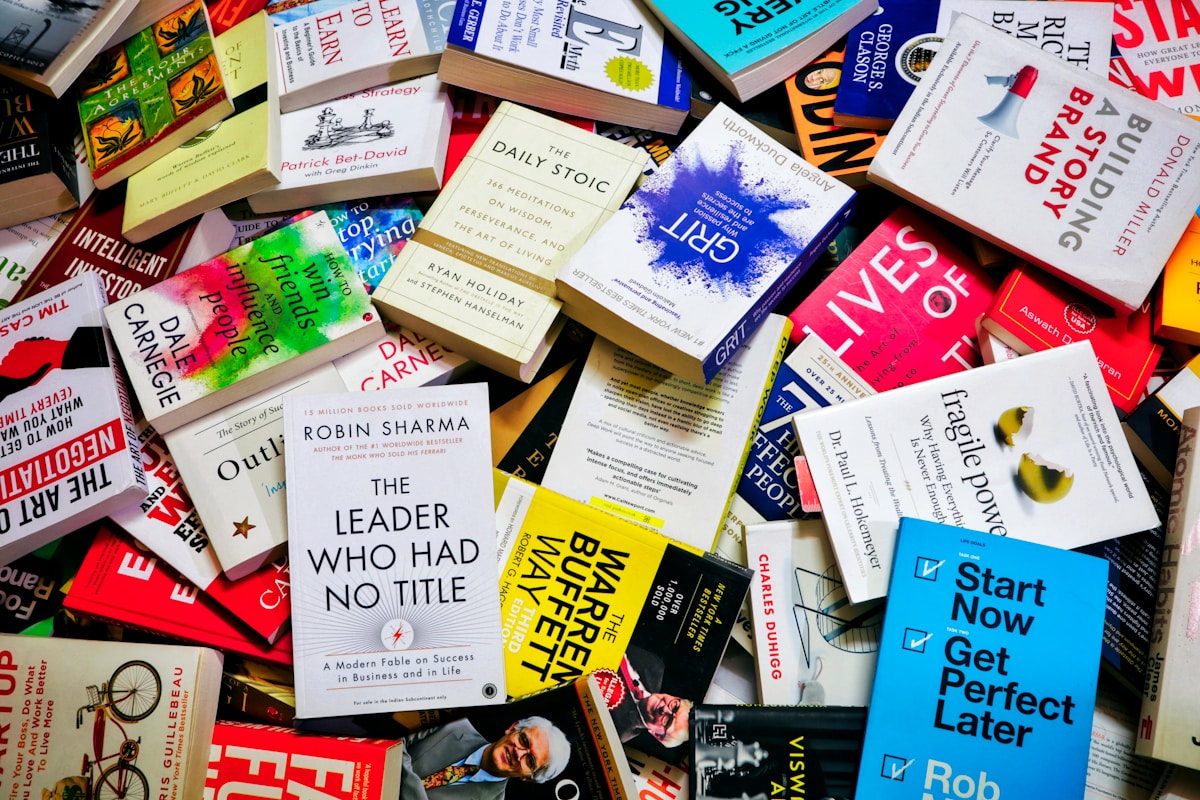What on God’s Green Earth Is a Trade Book?
By Diana Vilic

When shopping for books online, you've probably seen options like paperback, hardcover, collector’s edition, or—especially on Amazon—mass market paperback. But have you ever stopped to ask: What do these terms actually mean?
At the core, books are generally divided into two main publishing categories: trade books and mass market books. And while they may look similar at first glance, there are important differences that can affect how your book is published, marketed, and sold.
What Is a Trade Book?
A trade book is any title published for a general audience and distributed through traditional book retailers, libraries, and wholesalers. These are the books you’ll find at bookstores, library shelves, and online retailers like Barnes & Noble or Bookshop.org.
Think fiction, nonfiction, biographies, poetry, children’s books, cookbooks, and more—most books on display at your local bookstore are trade books.
How Trade Books Work
The Big Five publishers—Hachette Book Group, HarperCollins, Macmillan, Penguin Random House, and Simon & Schuster—focus on publishing trade editions. Their goal is to get books into brick-and-mortar stores, libraries, and schools by working with wholesalers and distributors.
Smaller and independent publishers often adopt the trade model too, though they may use a hybrid publishing approach that includes print-on-demand or digital-first formats. This can make visibility and distribution more challenging compared to the Big Five.
What Does “Trade” Really Mean?
The term “trade” refers to trade distribution channels—wholesalers, retailers, libraries, and catalogs. A trade paperback is a book sold through these professional channels, as opposed to being limited to mass-market placement.
Why It Matters for Authors
If you’re preparing to publish a book, understanding the difference between trade vs mass market publishing is critical. The publisher you choose, the format your book takes, and even how it reaches readers can all be influenced by this decision.
Trade publishers offer wider reach and more prestige—but may be harder to break into.
Indie publishers may use hybrid models, which can limit shelf visibility but offer greater author control.
Self-publishing typically places your book into the mass market category, which comes with both freedoms and limitations.
Every option has benefits, but understanding distribution models can help you make informed decisions.
What Counts as a Trade Book?
In general, any book except academic textbooks and collector’s editions can be considered a trade title. Examples include:
Hardcover and paperback editions
Fiction and nonfiction
Poetry collections
Cookbooks and biographies
Children’s books
Historical nonfiction
Even niche genres are included, as long as the book is produced for general commercial sale.
Trade Book vs. Mass Market Book: Key Differences
| Feature | Trade Book | Mass Market Book |
|---|---|---|
| Size & Quality | Larger, higher-quality materials | Smaller, lower-grade paper |
| Binding | Hardcover or trade paperback | Always paperback |
| Content | Original content, includes images | Abridged, rarely includes visuals |
| Return Policy | Not stripable; must be returned whole | Stripable; cover can be returned for credit |
| Availability | Found in bookstores, libraries, online retailers | Found in supermarkets, airports, drugstores |
| Purpose | For general audience and retail trade | For high-volume, low-cost sales |
Final Thoughts
As a new or aspiring author, deciding between trade book publishing and mass market distribution may not seem like your decision—but it absolutely is. While self-publishing is a great option for many, it’s worth considering the long-term reach, format, and exposure your book can achieve through trade publishing channels.
At the end of the day, understanding how your book fits into the publishing ecosystem gives you the power to make choices that align with your goals.
Looking to learn more about publishing?
Subscribe to the Childress Ink Blog for expert insights on independent publishing, book marketing, and writing tips for authors at all stages.
